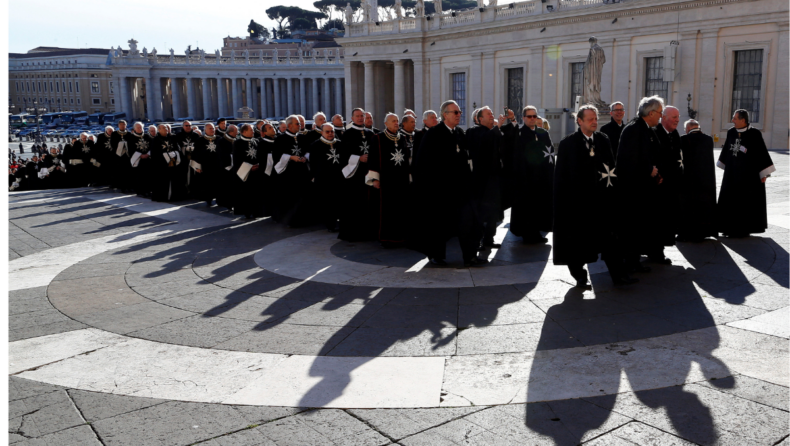In preparation for the election of a new Grand Master, Pope Francis on Saturday disbanded the leadership of the Knights of Malta, a large-scale Catholic religious order and humanitarian organization.
After five years of sometimes tense debate inside the order and between some of the old guard’s senior leaders and the Vatican over a new constitution that some thought would reduce the Vatican’s authority, the pope finally made the move by issuing a decree.

The organization, formally known as the Sovereign Military Hospitaller Order of St. John of Jerusalem, of Rhodes, and of Malta, was established in Jerusalem about 1,000 years ago to offer travellers to the Holy Land medical assistance.
With a multi-million dollar budget, 13,500 members, 95,000 volunteers, and 52,000 medical professionals, it is now operating clinics, drug treatment facilities, refugee camps, and disaster relief programs all over the world.
In its efforts to aid Ukrainian refugees and war victims, the order has been particularly active.
It is recognized as a sovereign entity with its own passports and license plates even though it has no actual land outside of a palace and offices in Rome and a fort in Malta.
It maintains diplomatic ties to 110 nations and holds permanent observer status at the UN, which enables it to participate in humanitarian initiatives in conflict zones impartially.
The new constitution of the order will not lessen its international sovereignty, Cardinal Silvano Tomasi, the pope’s personal representative to the order, said reporters during a briefing with several members of the interim administration.
Cardinal Gianfranco Ghirlanda, a member of the working group that created the new constitution that the pope signed on Saturday, said that although, as a religious order, it had to continue to operate under the supervision of the Vatican.
Pope Francis called a special general chapter on January 25 to start the selection process for a new Grand Master.
Giacomo Dalla Torre, an Italian, was the last; he passed away in April.
“We hope this will re-establish unity in the order and increase its ability to serve the poor and the sick,” Tomasi said.
The delegation will be led to the general chapter by Tomasi and the Canadian Lieutenant of the Grand Master, John Dunlap. By March, officials anticipate electing a new Grand Master.
Reformers argued that the earlier constitution effectively barred practically everyone other than Europeans from holding high positions because the Grand Master and the highest ranking Knights both had to come from aristocratic families.
Both the nobility rule and the custom of Grand Masters being chosen for life are abolished by the new constitution.
“It will be more democratic. The question of nobility has now become secondary,” Tomasi said.
Future Grand Masters will be elected to 10-year mandates that are only renewable once, and they will be required to resign at the age of 85.
Reformers, supported by the Vatican, had urged for more open governance to attract new talent and enable the order to more effectively handle the enormous expansion it has seen recently.
Read also – Pope rules against investigating Canadian cardinal over sex assault claim













